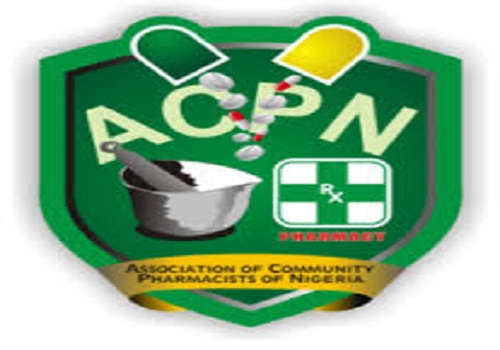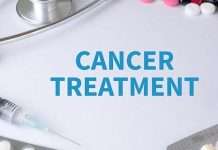Pharm. Chima A. Ogbu is the national publicity secretary, Association of Community Pharmacists of Nigeria (ACPN), and managing director, Medigate Pharmacy, Port Harcourt, Rivers State. In this informative interview with Pharmanews, the outspoken pharmacist speaks on the intricacies of his office as ACPN’s image maker, as well as strategies that can be adopted by the government to combat infiltration of the pharmacy profession by charlatans. Excerpts:
How has it been combining your duties as a community pharmacist with your responsibilities as ACPN image maker?
It has been highly challenging; nevertheless, I have been coping well. You know, when you combine roles, you expect challenges, but when you are prepared for those roles, you try to manage them. As a publicity secretary, you are the interface between the public and the association, in terms of making sure that the association’s policies are communicated to the outside world and internally to our colleagues; therefore, there must be free flow of communication at all times.
Besides, such communication must be right, precise, and targeted at a desired audience. So, while I would say it has been quite challenging, one must still find a way of combining both responsibilities to the best of one’s capabilities; and that is exactly what I am doing.
As someone who was mostly trained to be a pharmacist, what made you feel equipped for the role of publicity secretary?
Pharmacy is all-encompassing. This is why pharmacists are the best trained professionals. In fact, we often say that the society only makes use of about 25 per cent of the learning a pharmacist acquires in training.
As pharmacists, we are well exposed to social dynamics. When you talk of the work of a public relations officer, the work of a pharmacist is somehow related to it because community pharmacists are the most accessible healthcare professionals. This shows that we are in direct touch with people more than any other group in the healthcare system. In essence, we are daily exposed to inter-human relationship; and thus I have some experiences that I am using as a PRO to discharge my responsibilities.
Some people see community pharmacists as mere traders and noisemakers. As the image-maker of the association, what can you say about this?
How can they say that a trained pharmacist is a noisemaker? It does not appeal to common sense as much as I know. A noisemaker is someone whose sound is not projected towards achieving any aim; but when a pharmacist speaks, you will know that a professional is talking.
It is only in Nigeria that you will see drug-selling being ridiculed to the extent that the practice is being exposed to all manner of charlatans in unconventional situations; and you have open markets where these products are subjected to temperature effects, humidity effects and poor storage.
Our agitation over the years has always been that things should be done rightly, and we are not doing it for selfish aims; we are doing it for the benefit of the public and our nation, because a healthy populace will generate a healthy economy. We will continue to agitate until the right thing is done in Nigeria. So, when you see us agitating, don’t call it noisemaking. We are telling the authorities, and those that matter in the society that Nigerians deserve the right to healthy living.
This is an era of pharmaceutical care, and when we say that, we are actually saying that even after giving out drugs, it doesn’t end there; we counsel patients – there are times you are supposed to take the drugs; there are certain foods you are not supposed to take with the drugs; there are conditions in which you are not supposed to take certain drugs, etc. You don’t get such advice from a noisemaker. So, when you see a pharmacist, know that the person has acquired the necessary skills and knowledge to sell and administer drugs.
What is your assessment of community pharmacy practice in Nigeria?
All over the world, pharmacists are highly regarded; but, in Nigeria, people still see them as mere drug-sellers. Meanwhile, community pharmacy practice goes beyond drug-selling; an added value has been embraced all over the world by the practitioners to the extent that we now call it pharmaceutical care, patient management and targeted medication.
These things are developing and we are not even ready yet to start with the basic one like pharmaceutical care. The world is moving ahead to deploy other methods of making sure that, at the end of the day, people are healthy, and that they benefit from the enormous potentials that you find in pharmacy practice.
What aspects of your job as national publicity secretary do you consider particularly challenging?
Publicity is not an easy job as, most times, your utterances are susceptible to being misconstrued or taken out of context; but your job is to make sure your audience gets the right message. The challenge therefore has been that of trying to change the psyche of our people. I believe that every practitioner knows what to do but because they operate in different environments, you are not supposed to give the same information to all of them.
Due to population stratification and the knowledge base available, you are bound to have challenges because you are now managing different levels of population distribution and you must find an interface to give you a common goal in terms of the information you pass across.
On the other hand, we have the challenge of the government not being forceful in implementing the law. The Nigerian pharmacy law is one of the best you can get in Africa, but what is the difference between others and Nigeria? The political will. That is to say, if the law says one cannot get a prescription drug outside a pharmacy, those countries are making sure that this is implemented to the letter. In Nigeria, however, if you walk into any market, you can buy Ampicillin, for example, because it is so common. This is a wrong practice that we are campaigning against. It has not been easy but we will continue to advocate and use every means of social communication to reach out to the populace and the policy-makers. I believe that if the government is sincere, there would be a political will to implement the law.
What do you think contributed to the large turnout of participants at the last ACPN national conference and what is your office doing to further project the image of ACPN?
First and foremost, the publicity department is working day and night to ensure that information is available to our members at every point in time, just like we did for the last national conference. We are now into what we call network enhancement with which we want to make sure that practitioners can interact with one another. We are in the era where social media plays a very important role; so we want to improve networking. We want to ensure that our members are connected to social media and are deployed to our different pharmacies.
This is the era of information technology and we are advocating that all community pharmacists should flow with the trend. Recently, we have developed an app through which we are going to make sure that members connect to ensure effective community practice all over the world. The community pharmacist section of the international society (FIP) is the most important arm of the international body. Here in Nigeria, the story is the same – ACPN is the most important arm of the PSN and that should tell you the importance of community practice in the whole world.
We are not ignorant of the challenge posed by my position in terms of making sure that information is properly disseminated; so we are developing all sorts of systems to raise the bar of publicity high.










